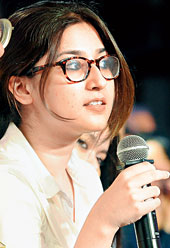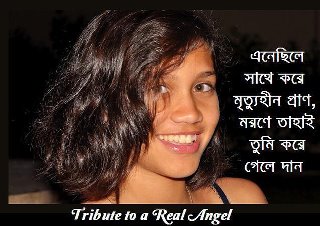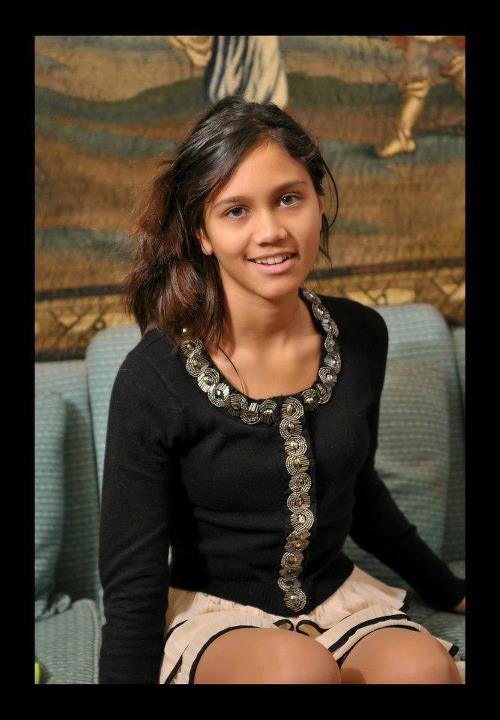Question Time Didi, organised by CNN-IBN at the Town Hall on Friday evening, was meant to be a platform for Mamata Banerjee to field questions from a cross-section of Calcuttans on the eve of her completing one year as chief minister. But less than 12 minutes and five questions into the event, Mamata stormed off, accusing some students of being “Maoists and CPM cadres”.
Taniya Bhardwaj, a Presidency University student whose question about the conduct of some of her ministers prompted Mamata to take off her lapel microphone and leave, writes a letter to her chief minister via The Telegraph:
Sorry Ma’am, but I am not a Maoist.
That is what you, the most important person in Bengal, labelled me at the CNN-IBN question-answer session on Friday at the Town Hall.
What exactly did I do to deserve this honour? I just asked you a question.
I had gone to the Town Hall on Friday just over a year after attending the CNN-IBN Battle for Bengal panel discussion at the same venue on April 21, 2011, and then a few days later, voting for change.
This is what I had written on April 28, 2011, in The Telegraph: “Changeathon 2011 is the most anticipated in recent history…. What makes it particularly exciting is the prospect of a revamped Calcutta ‘in 200 days’, the large number of fresh faces contesting the elections, the renewed hope for industrialisation…. I will vote with my fingers crossed — hoping for paribartan in the truest sense. And when I head to the polling booth, it won’t merely be a voting room, but more like a ‘changing room’.”
I had also written: “We want change, but are scared that we will move from a frying pan to a burning stove. Call me a sceptic, but I don’t see either political party as a positive alternative for Bengal.”
Sadly, a year later, you have proved — on national television — how right I was.
What did I do to earn the label of a Maoist and a CPM cadre from you?
I merely asked you whether affiliates of your party, specifically minister Madan Mitra and Arabul Islam, who wield power should act/should have acted more responsibly.
I, like many others, was greatly disturbed when Madan Mitra pronounced his own judgement on a rape victim before the police were done investigating. The Arabul Islam case, of course, is still making headlines.
I asked you what had been on the minds of most people around me, people who had voted for paribartan. Is this what we expect of our leaders? The ones who set examples and who people follow. This is all that I wanted to know.
What I got to know, instead, was that in Bengal today, asking a question can be equivalent to a Maoist act.
You also spoke of democracy. The answers you gave to the questions you took before mine were sprinkled with words like “people”, “democracy”, “Bengal”. But one of the most important features of a true democracy, which I have learnt as a student of political science, is the freedom of expression. This freedom means to be able to express oneself, to be able to question, to not have to mince words out of fear of authority, to be able to enjoy a chuckle or two at a cartoon about important public figures.
Sadly, there seems to have been a dramatic failure of this aspect of the democratic machinery in the state. And just like I won’t become a Maoist simply because you called me one, the state too won’t epitomise democracy unless it is truly democratic in all spheres.
All said and done, what you did was in haste, and it made me the centre of attention. And as you stomped off in fury, you automatically assumed the role of the spoilsport. Had you stayed on and heard us out, many of us would have left the Town Hall honestly believing that you are “a Chief Minister with a Difference’’. Instead….
You have spoken of the brain drain from Bengal so many times. I hold offers from the University College London and the School of Oriental and African Studies to study development and administration. I too will probably leave, and now you know the reason why.
From
A simple woman
(TANIYA BHARDWAJ)
(Presidency University, political science)
Courtesy: The Telegraph, Sunday , May 20 , 2012




